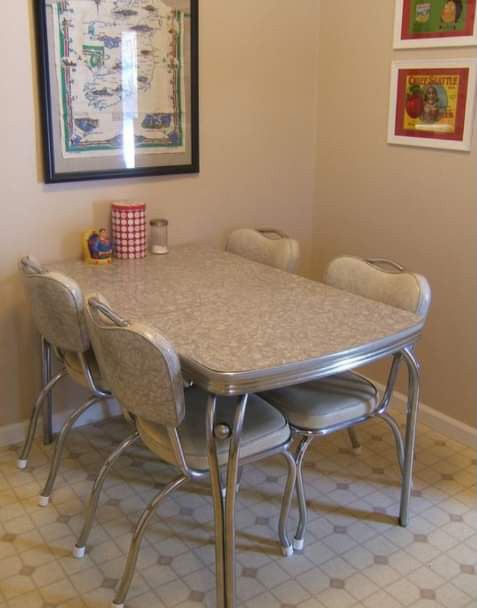The kitchen table is more than just a piece of furniture; it is a gathering spot, a place of countless meals and conversations, a pivotal component of the kitchen. The charm of vintage kitchen tables, such as the 1950s chrome and Formica models, goes beyond their utility to include a powerful nostalgic value that recalls a different era of home decor and family dynamics.
Main Body The image of a 1950s-style kitchen table, complete with chrome legs and a Formica top, evokes a particular era in American home design characterized by optimism and a booming post-war economy. These tables were designed not only for durability but also for ease of cleaning, reflecting the era’s innovation in synthetic materials. Formica, a heat-resistant, wipe-clean laminate, became popular for its ability to mimic more expensive materials like wood or stone, making stylish home decor accessible to the middle class.

These kitchen tables often came in muted pastels or vibrant patterns, popular color schemes of the time, which added a cheerful ambiance to the heart of the home. The sleek, shiny chrome legs were not just functional but also a nod to the era’s fascination with automobiles and machinery, embodying a culture enamored with speed and progress.
However, the appeal of these vintage tables isn’t solely aesthetic. They also represent a bygone social culture centered around home-cooked meals and family gatherings, contrasting sharply with today’s fast-paced, technology-driven lifestyles where meals are often rushed or taken on the go. For many, these tables symbolize a time when families gathered more frequently and more meaningfully around the dinner table.
In the modern home, these vintage pieces serve multiple roles. They are functional furnishings, certainly, but also conversation pieces and anchors for interior design schemes that evoke nostalgia. They appeal to both older generations who remember them from their youth and younger generations attracted to retro styles.
Conclusion Vintage kitchen tables, particularly those from the 1950s, are more than mere relics of the past; they are enduring symbols of familial warmth, home comfort, and mid-century design ingenuity. In a world that increasingly values sustainability and personalized home decor, the resurgence in popularity of these tables is not just about style but also about embracing slower, more meaningful ways of living. As we move forward, the enduring appeal of such pieces reminds us of the importance of design that serves both aesthetic and functional purposes, creating spaces that foster family interactions and personal satisfaction.
